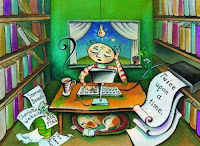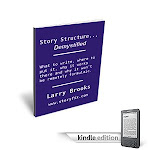Well, our characters, and our stories have to have goals to. Something that we hope to accomplish by the end of the book. If those goals are left undone, the reader is let down. Worse, if the story doesn't have a set of clear cut goals, we probably lose our reader before they get to the end of the story simply because they don't care. This is something I've been struggling with in my writing lately. What are my characters' goals, and more importantly, what is my story's goal?
First and foremost - to entertain your reader is definitely not a story goal. LOL. A story goal is something that your characters are trying to accomplish. To save the world for instance, might be a nice story goal. To fall in love is also not a really good story goal if you write romance. In fact, I've found that in most romance books, the characters don't set out to fall in love, it just sort of happens. Then, if you find a goal for your characters, it a) can't be something mundane - i.e. doing the laundry, it has to be something that your reader wonders whether they will be able to accomplish b) it has to be believable - i.e. it has to be within their character and c) it has to be clearly communicated to the reader on some level.
I've actually been through several iterations of my story goals for my sequel and finally think I hit upon something that works. It gives all of my characters goals that fit with the story, their characters, and also provides the conflict that is so desparately needed to keep the story moving.





















